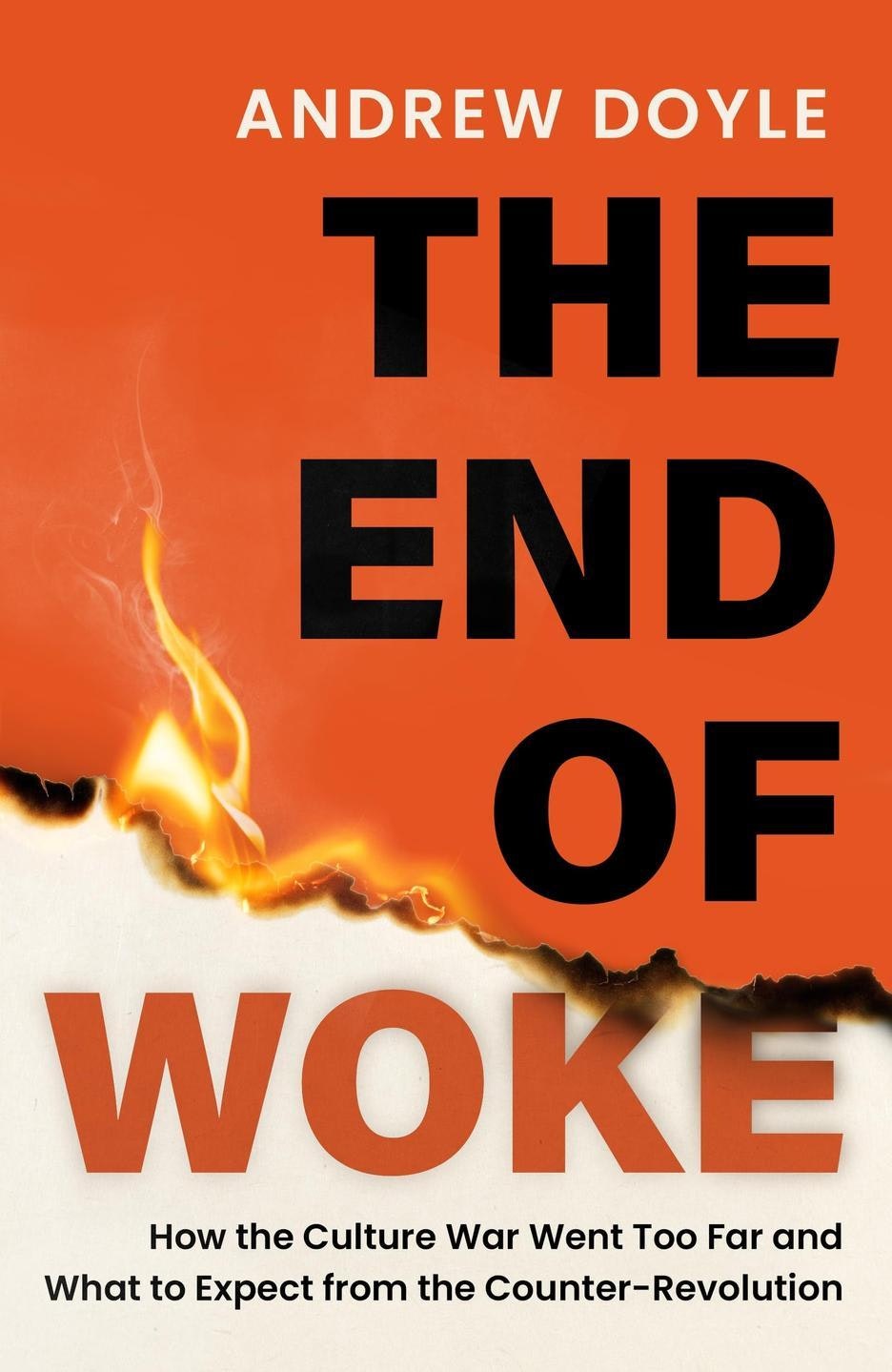This article is taken from the July 2025 issue of The Critic. To get the full magazine why not subscribe? Right now we’re offering five issues for just £25.
It has become a common talking point amongst certain sections of the commentariat that wokeness has peaked and is in fact on the decline and in retreat. The latest and most thorough exposition of this view is Andrew Doyle’s The End of Woke, in which Doyle discusses what wokeness was, what it did and why it failed.
The author presents his case in clear, clean prose that is a pleasure to read. The problem comes from the arguments articulated by this prose. The author fails to make a convincing case, fatally hamstrung by his deepest philosophical priors.

Doyle defines wokeness as “a cultural revolution that seeks equity according to group identity by authoritarian means”. This is fine as far as it goes, and it effectively describes how wokeness functions. However, what is being described here is a mode of politics.
This definition fails to articulate wokeness’s ideological content. Eric Kaufmann’s definition demonstrates the difference: “the sacralisation of historically disadvantaged race, gender and sexual identity groups”.
Kaufmann roots wokeness’s origins in a form of early-20th century left-liberalism, not what Doyle calls “Critical Social Justice”.
Doyle also spends too little time on the structural roots of wokeness’s ideological success, whilst Kaufmann details the institutional dynamics that enabled the implementation of the woke worldview.
Doyle’s definition of wokeness means he can avoid specificity when it comes to its ideological roots: rather than seeing it as a specifically leftist phenomenon, Doyle can instead position wokeness as a broader species of authoritarianism, in direct opposition to what he sees as the only moral and realistic philosophy — liberalism. As a result, Doyle is able to stand against the so-called “woke right”, which for him encompasses authoritarian far-right politics, such as white identitarian nationalism and its use of antisemitism.
The problem is that whilst the left and right points of the political horseshoe may be similar because they’re close together, they are still separate and therefore different. The “woke right” label is of no use because it fails to make these differentiations. It has been used by its creators as a club against not only vile white nationalists but also against any form of conservatism that does not affirm liberal principles, i.e. most of conservatism itself.
Doyle posits liberalism as the true alternative to wokeness, saying that wokeness is not the progeny of liberalism because it is explicitly antiliberal. However, as Geoff Shullenberger has argued, liberalism itself bears responsibility for wokeness, due to the scepticism of non-empirically verifiable claims to authority and the need for liberty from external constraint and equality of condition, as posited by Locke’s State of Nature thought experiment.
These are built into liberalism’s foundations from Hobbes onwards. As such, wokeness represents an autoimmune disorder of liberalism itself, its core tenets all pushed to their conclusions by woke ideologues. Doyle repeatedly cites J.S. Mill as his lodestar for what his vision of liberalism constitutes.
This dissolves the ground from under him, as Mill’s opposition of liberty to authority means that there is no way to say what vision of the good our lives should be oriented towards or even if our lives have a telos at all. Again, this leaves a vacuum for wokeness to fill.
Doyle displays an admirably traditionalist approach to education, but this is undermined by the degradation of authority by Mill. How does one say what is true and false, right and wrong, good and bad in the face of woke educational nihilism when any authority must be put to the question via critical thinking, the goal of education in Doyle’s eyes?
Finally, Doyle does not mention the element of Mill’s philosophy that is the most devastating to his cause of shoring up liberalism against wokeness. Mill wrote that those capable should be entitled to engage in “experiments in living”, whereby
The human faculties of perception, judgment, discriminative feeling, mental activity and even moral preference are exercised only in making a choice. He who does anything because it is the custom, makes no choice … the danger which threatens human nature is not the excess, but the deficiency, of personal impulses and preferences.
A better definition of the woke subjectivism that leads to gender ideology and the buffet approach to identity cannot be found. And for Mill all this was to be implemented by the enlightened few upon the bigoted, backward many.
Whilst Doyle may insist that wokeness is antithetical to liberalism, this is only because autoimmune disorders are antithetical to the host. Wokeness will not be defeated by more of what brought us here.












